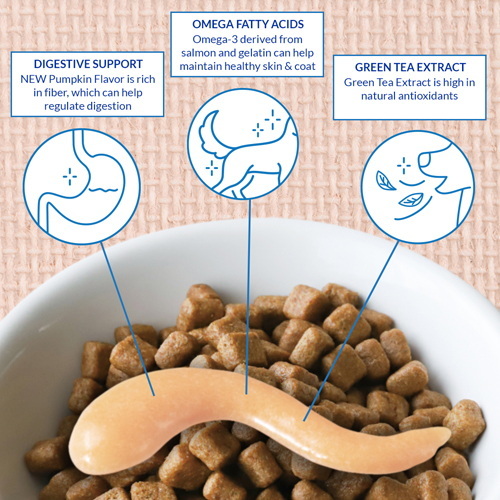Content Menu
● The Potential Benefits of Green Tea for Dogs
● The Risks of Green Tea Extract for Dogs
● Understanding Green Tea Extract Toxicity in Dogs
● Trends Related to Green Tea Extract for Dogs
● Safety Measures
● Additional Considerations
● Conclusion
● FAQ
>> 1. Can green tea extract be toxic to dogs?
>> 2. Are there any potential benefits of green tea extract for dogs?
>> 3. How much green tea extract should I give my dog?
>> 4. Can green tea extract interact with other medications?
>> 5. Are there any side effects of green tea extract for dogs?
● Citations:
Green tea extract has become increasingly popular for its potential health benefits in humans, leading many pet owners to wonder if it can also benefit their dogs[6]. Green tea, like many foods, may have benefits for humans but not necessarily for animals[3]. While green tea extract is generally considered safe for dogs in small doses, it can be toxic in large amounts due to its caffeine content[6]. It's important to consult with a veterinarian before giving your dog green tea extract[3][6].

The Potential Benefits of Green Tea for Dogs
Green tea is packed with antioxidants, making it a healthy drink for humans[3]. Research suggests that green tea extract may offer several potential benefits for dogs[6]:
-Improved immune function[6][10]
-Reduced inflammation[6]
-Protection against certain types of cancer[6][10]
-Fresher breath[5]
-Stronger bones[5]
-Improved skin health[5]
In animals, the catechins of green tea have been found to concentrate in the liver and digestive tract, which is why it's especially useful in treating diseases in these organs[10].
The Risks of Green Tea Extract for Dogs
Despite the potential benefits, there are also risks associated with giving green tea extract to dogs[3].
-Caffeine Content: Green tea contains caffeine, which can be harmful to dogs in large doses[3][6][9]. One cup of green tea contains about 29.4 milligrams of caffeine[9]. Canines are more sensitive to its effects than people, and caffeine can cause high blood pressure, hyperactivity, vomiting, and gastrointestinal distress[9].
-Toxicity: In large doses, green tea extract can be toxic to dogs[6][7]. A 2011 study revealed that green tea extracts could cause lethal liver, gastrointestinal, and renal toxicities in fasted dogs[7]. The main findings were necrosis of the liver cells and gastrointestinal lining, as well as kidney damage, degeneration of reproductive organs, and bone marrow disorders[7].
-Gastrointestinal Issues: Green tea extract can cause gastrointestinal irritation, vomiting, diarrhea, and red material in the stool[4].
Understanding Green Tea Extract Toxicity in Dogs
Recent chronic toxicity studies performed on green tea extracts in fasted dogs have revealed some unique dose-limiting lethal liver, gastrointestinal, and renal toxicities[1]. Key findings included necrosis of hepatic cells, gastrointestinal epithelia and renal tubules, atrophy of reproductive organs, atrophy and necrosis of hematopoietic tissues, and associated hematological changes[1]. The polyphenol cachetins appeared to be the causative agents for the observed toxicities because they are the active ingredients of green tea extract studied[1].
The toxicity mechanisms that produced lethality are not known, but the results are scientifically intriguing[1]. Because tea drinking has become more popular, the mode of action and site of action of green tea extract-induced lethal toxicities during fasting and the role of other phytochemical components of Folia Camellia sinensis warrant further investigation[1].
Trends Related to Green Tea Extract for Dogs
Several trends have emerged regarding the use of green tea extract in pet products[6]:
1. Increased use in pet products: Green tea extract has become a popular ingredient in many pet products, such as treats, supplements, and shampoos[6].
2. Growing interest in natural remedies: As more pet owners seek natural alternatives to traditional medications, green tea extract has emerged as a popular option[6].
3. Research on the benefits of green tea extract: Studies have shown that green tea extract may have potential benefits for dogs, such as improved immune function, reduced inflammation, and even protection against certain types of cancer[6].
4. Concerns about caffeine content: One of the main concerns about green tea extract for dogs is its caffeine content[6].
5. Dosage recommendations: Veterinarians recommend starting with a small dose of green tea extract for dogs and gradually increasing it as needed[6].
6. Potential side effects: Like any supplement, green tea extract can have potential side effects in dogs, such as stomach upset, vomiting, or diarrhea[6].
7. Consultation with a veterinarian: Before giving your dog green tea extract, it is important to consult with a veterinarian to ensure that it is safe for your dog's specific health needs[6].

Safety Measures
If you decide to give your dog green tea, there are several steps you can take to minimize the risks[3]:
Step 1: Consult with Your Veterinarian
Before giving your dog green tea, it's important to consult your vet first[3]. Every dog has different health requirements, and some might be more sensitive than others[3]. Certain medical conditions can also make drinking green tea unsafe for them[3].
Step 2: Choose High-Quality Green Tea
When selecting a brand of green tea, opt for those that are made from high-quality organic leaves without additives like sugar or milk[3].
Step 3: Brew It Weak
Make sure to brew the green tea weaker than you would for yourself[3]. This will help to reduce the amount of caffeine and other potentially harmful compounds that your dog consumes[3].
Step 4: Monitor Your Dog
After giving your dog green tea, monitor them closely for any signs of adverse reactions[6]. If you notice anything unusual, such as vomiting, diarrhea, or hyperactivity, contact your veterinarian immediately[3][6].
Additional Considerations
-Avoid giving green tea extract on an empty stomach[4].
-Stay well below the no observed adverse effect level (NOAEL) of 500 mg of EGCG per kg bw per day[4]. This is relatively easy to do when giving brewed tea, as it is around 165 mg per cup[4].
-Consider decaffeinated green tea[4].
Conclusion
While green tea extract may offer some potential health benefits for dogs, it also carries risks, primarily due to its caffeine content and potential toxicity in large doses[6][9]. It is crucial to consult with a veterinarian before giving your dog green tea extract and to follow safety measures to minimize the risk of adverse reactions[3][6]. The decision to give your dog green tea extract should be made carefully, considering your dog's individual health needs and potential risks[6].

FAQ
1. Can green tea extract be toxic to dogs?
Yes, while green tea extract is generally safe for dogs in small doses, it can be toxic in large amounts due to its caffeine content[6]. It is important to monitor your dog closely and consult with a veterinarian before giving them green tea extract[6].
2. Are there any potential benefits of green tea extract for dogs?
Research suggests that green tea extract may have potential benefits for dogs, such as improved immune function, reduced inflammation, and even protection against certain types of cancer[6]. However, more studies are needed to confirm these benefits in dogs[6].
3. How much green tea extract should I give my dog?
The dosage of green tea extract for dogs can vary depending on their size, age, and health status[6]. It is important to follow dosing guidelines carefully and consult with a veterinarian before giving your dog green tea extract[6].
4. Can green tea extract interact with other medications?
Green tea extract may interact with certain medications, such as blood thinners or stimulants[6]. It is important to consult with a veterinarian before giving your dog green tea extract to avoid potential drug interactions[6].
5. Are there any side effects of green tea extract for dogs?
Like any supplement, green tea extract can have potential side effects in dogs, such as stomach upset, vomiting, or diarrhea[6]. It is important to monitor your dog closely after giving them green tea extract and consult with a veterinarian if you notice any adverse reactions[6].
Citations:
[1] https://pubmed.ncbi.nlm.nih.gov/21098339/
[2] https://www.dogfoodadvisor.com/forums/topic/green-tea-extract-toxic-to-dogs/
[3] https://doghousefmb.com/can-dogs-drink-green-tea-the-surprising-truth-benefits-and-risks-expert-guide/
[4] https://www.harperandfriends.com/blogs/news/green-tea-for-dogs
[5] https://matcha.com/blogs/news/matcha-and-pets-is-matcha-safe-for-pets
[6] https://vetexplainspets.com/is-green-tea-extract-safe-for-dogs/
[7] https://peterdobias.com/blogs/blog/is-green-tea-toxic-to-dogs
[8] https://www.researchgate.net/publication/26236186_Exposure_and_Toxicity_of_Green_Tea_Polyphenols_in_Fasted_and_Non-Fasted_Dogs
[9] https://www.dogster.com/dog-nutrition/can-dogs-have-green-tea
[10] https://fotp.com/learn/dog-supplements/the-benefits-of-green-tea-for-dogs
[11] https://pawsandclawsanimalhospital.com/green-tea-for-dogs/
[12] https://pmc.ncbi.nlm.nih.gov/articles/PMC2687403/

 English
English 




























